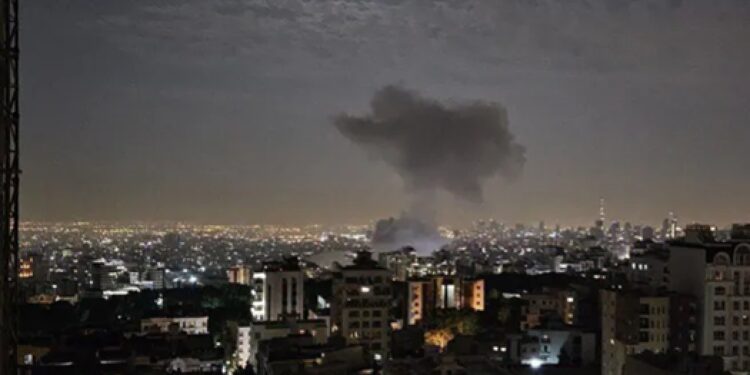Tel Aviv led on the night of June 12 to 13, a series of targeted strikes against several strategic sites in Iran, causing the death of high officers of the body of revolution guards. Tehran promises a “strategic” response. Washington, led by Donald Trump, says he is not involved but remains silent.
In a coup that could tip the Middle East in a new phase of open confrontation, Israel targeted on Thursday to Friday several Iranian military and nuclear infrastructures. The operation, named Rising Lion, notably targeted the Uranium enrichment site in Natanz, command centers of the Revolutionary Guardian Corps in Tehran, and missile bases in the cities of Khorramabad, Tabriz and Ispahan. General Hossein Salami, a former CGRI chief, was said to have been killed in the strikes, which gives this offensive a political and military political scope.
The Iranian government immediately denounced a “planned assault” and convened a crisis meeting of the Supreme National Security Council. In a statement, the Iranian Defense Ministry promised that this attack “would not remain unanswered” and suggested that American interests in the region could be considered as legitimate targets, in the same way as Israel.
Trump back… or accomplice?
This attack, although claimed unilaterally by Tel Aviv, is part of a strategic context where the United States, since Donald Trump’s return to the White House in January, clearly tightened their ties with the Israeli government of Benyamin Netanyahu. If the White House claims not to have been informed or associated with the operation, President Trump did not formulate any conviction, contenting himself with calling for “vigilance” while reaffirming the right of Israel to defend himself.
On the ground, the tension is palpable. The American forces stationed in Iraq, Kuwait and Qatar are on maximum alert. The American general staff fears an indirect response from Iran through its regional networks: Hezbollah in Lebanon, Shiite militias in Iraq and Syria, or even naval attacks on freight lines in the Strait of Ormuz and the Red Sea. A fragmented and prolonged embraces scenario, much more complex than a direct confrontation.
In parallel, the Israeli attack in fact buries any possibility of resumption of dialogue on Iranian nuclear. Secret discussions between American and Iranian emissaries, scheduled for Oman in the coming days, have been suspended Sine Die. The International Atomic Energy Agency (AIEA), which closely followed the Natanz site, has not yet been able to assess the extent of the damage.
This raid raises a series of questions on long -term efficiency of an Israeli strategy based on deterioration by force. By attacking Iranian territory, Tel Aviv breaks a strategic taboo and places Tehran in a position where the lack of response would considerably weaken its regional authority. But a too massive response would risk opening a large -scale conflict.
The prudent silence of Donald Trump, who since his return to power is favorable to a hard line against Iran, is interpreted in Tehran as an implicit downstream. A position that is more isolates the United States on the international scene, while the European Union calls for de-escalation and Russia and China demand an emergency meeting of the UN Security Council.
In the aftermath of the strikes, the region seems to be suspended from the decision that Tehran will make. Targeted strikes, cyber attacks, or attacks via armed groups? Whatever the form, the response now seems inevitable. And with it, the risk of a gear that could permanently redraw the strategic balance of the Middle East.








